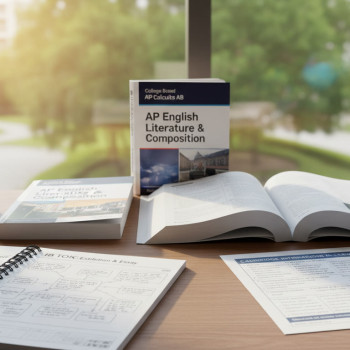Why Visa and Document Planning Matter for AP Students (and Their Parents)
When your teenager first tells you they’re taking AP classes, it can feel like a small academic achievement—until the word “international” or “study abroad” enters the conversation. Suddenly there are passports, testing centers in other countries, score reporting deadlines, and questions about how AP scores map to admissions and credit overseas. This guide is designed to walk you through the practical, human side of those logistics so you can keep your calm, help your child stay on track, and even turn this administrative maze into a strategic advantage.
The big picture — how AP ties into international study and visas
Advanced Placement (AP) exams are academic credentials that many universities worldwide recognize for placement, credit, and sometimes admissions consideration. For students who plan to study abroad or are testing outside the United States, AP touches several non-academic systems: immigration and visa timelines, local test center policies, documentation requirements for score submission, and school-to-school communications.
That means a few pieces of paper and a properly timed request can make a real difference—saving stress, preserving deadlines, and ensuring AP scores actually arrive where and when they’re needed.

Common situations that bring visa and document questions
Let’s break down the real-world situations parents often face that raise visa or documentation issues related to AP:
- Testing at an international AP test center while living abroad or traveling.
- Seniors applying to colleges overseas who need to send AP scores to meet admissions or credit deadlines.
- Students hoping to use AP credits to place out of introductory courses upon arrival at an international university.
- Families whose travel plans (for testing or university orientation) intersect with visa appointments and passport renewals.
- Students requesting documented accommodations or special delivery of score reports for visa or scholarship applications.
Why timing is everything
You’ve probably heard this before, but it’s worth repeating: with visas, passports, and score reports, timing isn’t just inconvenient if it slips—it can change outcomes. AP scores are released in early July, and many universities expect official reports by specific deadlines. Visa appointments and processing times vary widely by country and season. Missing a deadline to send AP scores or renew a passport can mean postponed enrollment, delayed placement, or extra cost.
Key documents parents should track
Here’s a concise checklist of documents you should monitor, photocopy, and—where appropriate—digitally secure. Keep both originals and clear digital copies in a secure cloud folder and a local backup.
- Passports (student and parents if travel is planned)
- Birth certificates or national ID (useful for certain school verifications)
- College Board account information (login, email, and security settings)
- AP exam registration confirmation and ordering receipts
- College Board-designated institution (DI) codes for score sending
- Letters from school counselors or administrators (for alternate testing arrangements)
- Visa appointment confirmations and embassy correspondence
- Any documentation required for exam accommodations (if applicable)
How to organize documents so they actually help
A three-folder approach works well both physically and digitally: Active, Pending, Archive. Active contains items you need in the next 60–90 days (passport, exam registration); Pending holds items in process (visa application, passport renewal), and Archive stores older confirmations and past score reports. Make a shared calendar entry for every deadline—score sends, visa interviews, and test center registration cutoffs—so nothing sneaks up on you.
AP exam registration & test centers: what to consider for international testing
Not every school administers AP exams, and not every country has the same test center options. If your child is traveling to take an AP exam or lives abroad, you may need to:
- Find authorized AP test centers in the region and confirm registration deadlines.
- Understand alternate school testing procedures when the home school does not offer exams.
- Book travel early enough to account for test dates, which are typically in May (with specific scheduling determined each school year).
Booking flights or hotel rooms the day before an exam is tempting for budget reasons, but logistical hiccups (delays, lost luggage, local transit strikes) can derail testing. When in doubt, aim to arrive at least one full day before the exam.
Practical coordination with test centers
Contact the test center well in advance—ask about arrival procedures, ID requirements, and whether they require printed registration confirmation or the student’s College Board ID. In some international settings, test centers may ask for proof of residency or school enrollment. Always confirm what form of ID is acceptable: some centers accept school IDs, others require passports.
Sending AP scores: free sends, deadlines, and DI codes
College Board offers one free AP score send per exam year; it’s a powerful benefit if used carefully. Parents and students must plan who will receive that free send, and when. For international college admissions, check the institution’s preferred or required method for receiving AP scores—and whether they need a particular College Board designated institution (DI) code.
| Action | Why It Matters | Timing Tip |
|---|---|---|
| Use free score send | One free official report per year saves cost | Decide before June 20 (typical yearly guidance) to avoid fees |
| Confirm DI code | Ensures scores reach the right office at the university | Gather codes well before applying—some institutions need time to accept reports |
| Order additional reports | Useful for multiple applications or late requests | Order immediately after score release to meet admissions deadlines |
Note: policies and exact cutoff dates can vary year to year. Parents should confirm the current calendar on their child’s College Board account and the university admissions page. Keeping a copy of the confirmation email when you order a score send provides a useful paper trail in case something needs to be resolved later.
Visa timelines and aligning them with AP-related plans
Visa processing times are famously variable. Some embassies and consulates operate faster in low season and slower around summer or national holidays. If a student is applying to universities abroad and the admissions decision or placement hinges on AP scores, you’ll want to plan visa appointments with these timing realities in mind.
Practical sequence to avoid last-minute rushes
- Confirm test date and location. Book travel if necessary.
- Register for AP exams and print confirmations.
- Plan score sends and note the free send deadline for that year.
- Check university deadlines for receiving AP scores; contact admissions if unclear.
- Schedule or prepare for visa appointments mindful of seasonal backlogs.
- Keep records of everything: passport scans, receipts, confirmations, and emails.
Special situations: accommodations, cancellations, and emergencies
If your child needs testing accommodations, start the process early. The documentation and school coordinator involvement required by College Board’s Services for Students with Disabilities (SSD) must be prepared in advance; last-minute requests are rarely feasible when international travel is involved.
Life happens. Flights cancel, passports expire, family emergencies arise. Two strategies make these less catastrophic:
- Insurance and backup plans: travel insurance that covers exam date changes is a small cost for peace of mind. Also have a backup test center or alternate testing date in mind if geography permits.
- Immediate contact: keep the test center and the AP coordinator informed; they often can suggest solutions you might not know about.
When to call the College Board or the university
If you can’t resolve an issue with the test center—missing score reports, accommodation confirmation, or confusion about free score sends—contact the College Board. For admissions or credit-related questions, contacting the university’s admissions office or the department that handles credit/placement is usually the fastest route. Keep communication courteous and paper-trail-friendly: dates, names, and short summaries of each interaction will help if anything needs escalation.
Real-life examples: how small paperwork wins saved enrollment
Example 1: A family planning to move to the U.K. arranged a local AP test center and used their free score send to forward AP scores to the intended university before July. Because they confirmed the university’s DI code in March and sent in documentation early, their student received placement credit and started with second-year course material—saving tuition and making the transition smoother.
Example 2: A student’s passport renewal was delayed. Their parent had organized emailed confirmation of the AP test center registration and the student’s College Board ID, which the test center accepted as temporary proof for testing. The family then expedited the passport for travel and used digital score report orders to meet deadlines.
How parents can meaningfully support without taking over
Parents want to help—but the goal is to empower your teen. Here are practical roles you can take that help build autonomy:
- Be the calendar keeper: track deadlines and appointments, but let your child own communications with schools and test centers.
- Be the document organizer: scan and store important IDs, confirmations, and receipts in a shared folder.
- Be the safety net: research double options (alternate centers, travel plans) and keep backup funds for urgent fees.
When tutoring and coaching fit into logistics
Academic readiness and logistical readiness go hand in hand. If your teen could use targeted review or help planning their AP exam strategy, consider personalized tutoring. Programs like Sparkl offer 1-on-1 guidance, tailored study plans, and expert tutors who can also coach your student on the timing of score sends and how best to present AP results during the application process. That kind of integrated support can reduce both academic anxiety and administrative mistakes.
Top tips parents should bookmark
- Always copy important confirmations to at least two places: cloud and local storage.
- Decide early who receives the free AP score send each year.
- Confirm acceptable ID with your test center at least 30 days before the exam.
- Check passport expiration rules for your destination—many countries require 6+ months validity beyond travel dates.
- If applying overseas, confirm how the target university accepts AP scores (DI code, emailed verification, or transcript upload).
- Start accommodation requests early and keep correspondence organized.
- Use a trusted tutoring partner for academic readiness and planning support when needed.
Frequently asked questions parents ask (and how to answer them)
Q: Can AP exams be taken in a different country than where my child lives?
A: In many cases, yes—if there’s an authorized test center in that country and your student can register there. If their home school doesn’t administer AP exams, you may need to find an alternate or authorized test center nearby. Always confirm with the test center what ID and registration paperwork they require.
Q: My child needs AP scores for early decision—what’s the smartest move?
A: Prioritize the free score send if it covers the early decision school. If the timeline is tight, order an additional official score report immediately after scores are released and keep the admissions office notified about your timeline. Early communication with the university can prevent surprises.
Q: How do I handle a missing or delayed passport around testing time?
A: Contact the test center immediately and explain the situation. Some centers accept alternate IDs for domestic testing; for international testing, expedited passport services are often the necessary step. Keep the College Board and any involved institutions informed.
Planning checklist — the month-by-month approach (sample timeline for a senior applying abroad)
| When | Task | Why It Helps |
|---|---|---|
| 9–12 months before | Research target universities’ AP credit and admissions policies | Ensures you know which exams and scores matter |
| 6–9 months before | Confirm test center and register for AP exams | Locks in the testing location and ID requirements |
| 3–6 months before | Check passport validity and schedule renewal if needed | Averts travel and testing complications |
| Immediately after scores release | Use free send or order official reports to universities | Meets admissions and placement deadlines |
| Post-admission | Confirm placement results and use AP credits as needed | Helps with course planning and tuition savings |
Final thoughts — stay organized, stay curious, and stay calm
Helping your child manage AP exams, visas, and document flows isn’t just about paperwork. It’s about creating patterns of responsibility and calm that serve them in college and beyond. A few practical routines—shared calendars, secure file folders, advance registrations, and early communication with test centers and universities—go a long way.
If you find the process overwhelming, don’t hesitate to bring in targeted help. Personalized tutoring and planning support—such as 1-on-1 sessions that include not only academic review but also guidance on timing score sends and understanding application documentation—can remove friction and let your teen focus on learning and doing their best on exam day.

You’re not just managing forms and deadlines—you’re shepherding a moment that helps your child step toward new opportunities. With thoughtful planning and a little help when you need it, AP can become more than a test: it can be a bridge to the next chapter of their life.
Quick resources checklist to copy
- Shared calendar with: AP registration date, test date, score release date, visa appointments, college deadlines.
- Digital folder with: passport scan, birth certificate scan, AP registration confirmation, DI codes for target universities, receipts for score sends.
- Contact list: AP coordinator at school, test center phone/email, admissions contacts at universities, College Board help resources.
Good luck—and remember: careful paperwork is the quiet parent move that turns stressful surprises into manageable steps. You’ve got this.















No Comments
Leave a comment Cancel